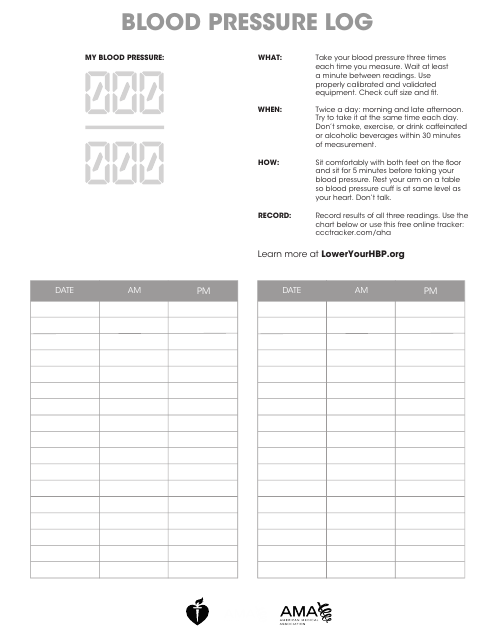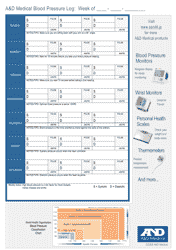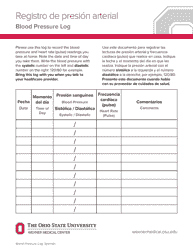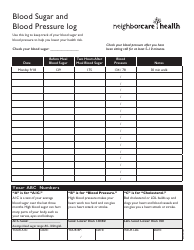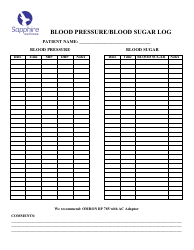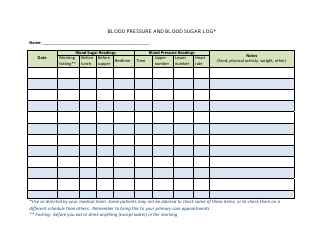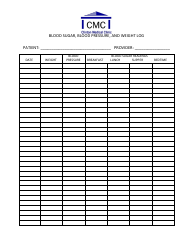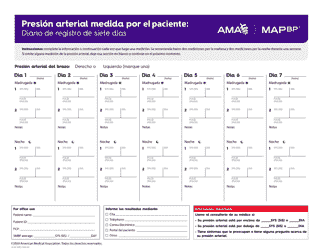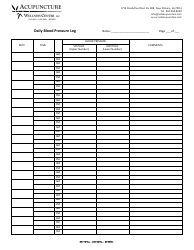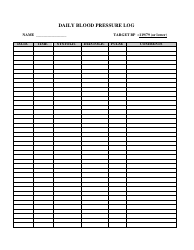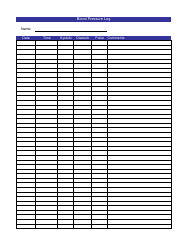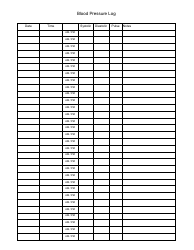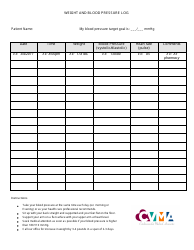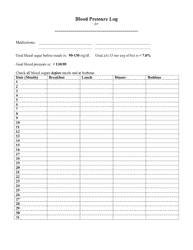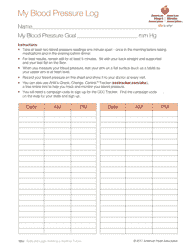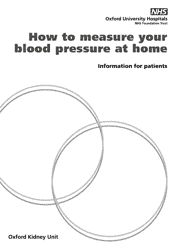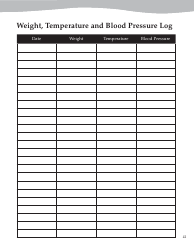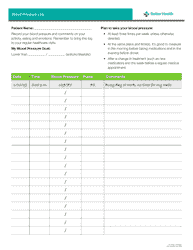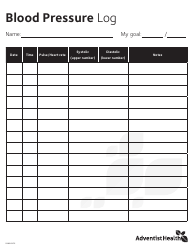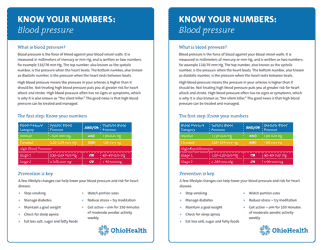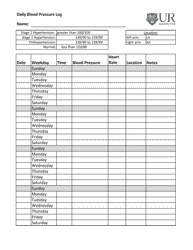Blood Pressure Log - American Medical Association
The Blood Pressure Log from the American Medical Association is a document used to track and record blood pressure readings over time. It helps individuals monitor their blood pressure and identify trends or patterns.
FAQ
Q: What is a blood pressure log?
A: A blood pressure log is a record of your blood pressure readings over time.
Q: Why should I keep a blood pressure log?
A: Keeping a blood pressure log can help you and your doctor monitor your blood pressure and make informed decisions about your treatment plan.
Q: How often should I record my blood pressure?
A: It is recommended to record your blood pressure at least once a day, or as advised by your doctor.
Q: What information should I include in my blood pressure log?
A: You should include the date, time, and your blood pressure readings (both systolic and diastolic numbers). You may also want to record your heart rate and any additional notes such as medication changes or symptoms experienced.
Q: What is a normal blood pressure reading?
A: A normal blood pressure reading is typically around 120/80 mmHg.
Q: What is considered high blood pressure?
A: High blood pressure, also known as hypertension, is generally defined as a blood pressure reading of 130/80 mmHg or higher.
Q: What are the risk factors for high blood pressure?
A: Risk factors for high blood pressure include being overweight, having a family history of hypertension, being physically inactive, consuming a high-sodium diet, smoking, and excessive alcohol consumption.
Q: How can I lower my blood pressure?
A: You can lower your blood pressure by making lifestyle changes such as maintaining a healthy weight, exercising regularly, eating a balanced diet low in sodium, limiting alcohol intake, and reducing stress. In some cases, medication may also be prescribed by your doctor.
Q: When should I seek medical attention for my blood pressure?
A: You should seek immediate medical attention if you experience severe symptoms such as chest pain, shortness of breath, severe headache, or confusion. You should also consult your doctor if your blood pressure readings consistently exceed the normal range.
Q: Can I check my blood pressure at home?
A: Yes, you can check your blood pressure at home using a blood pressure monitor. It is recommended to use a validated monitor and follow the instructions carefully. You should also have your monitor checked for accuracy at your doctor's office.
